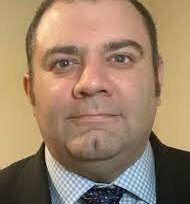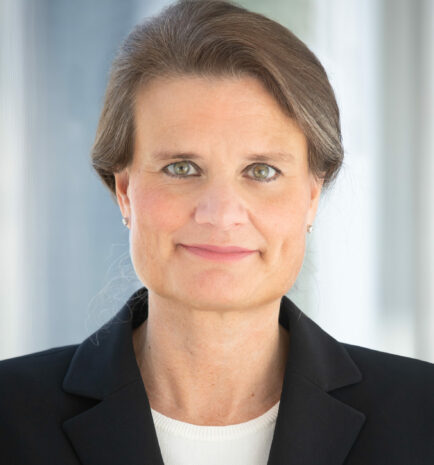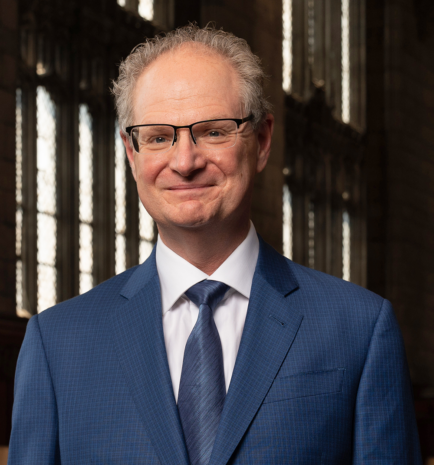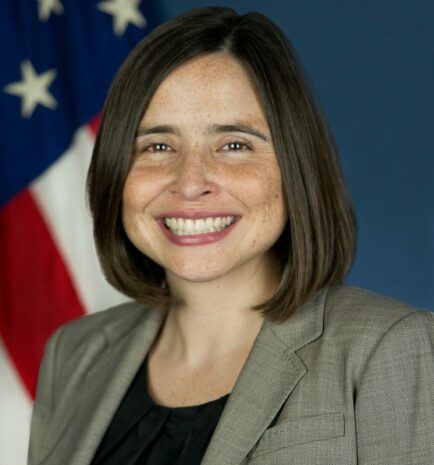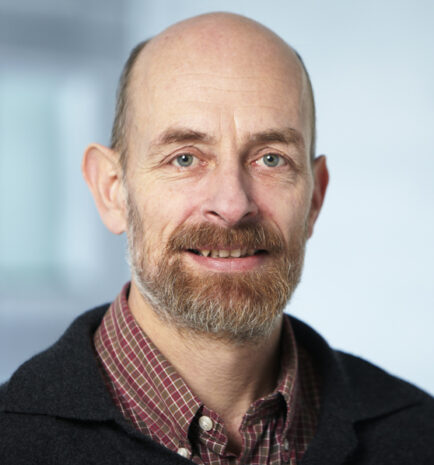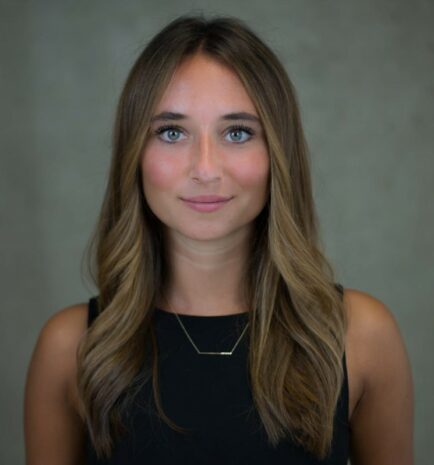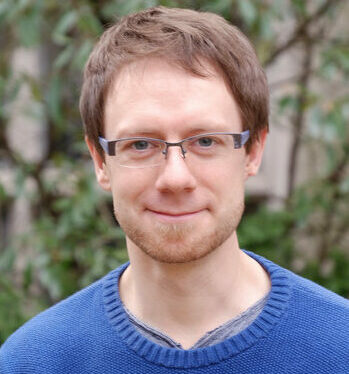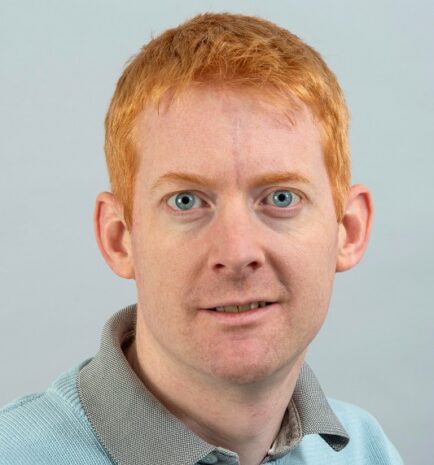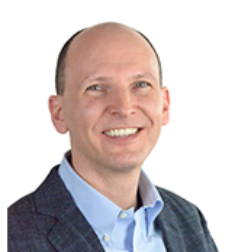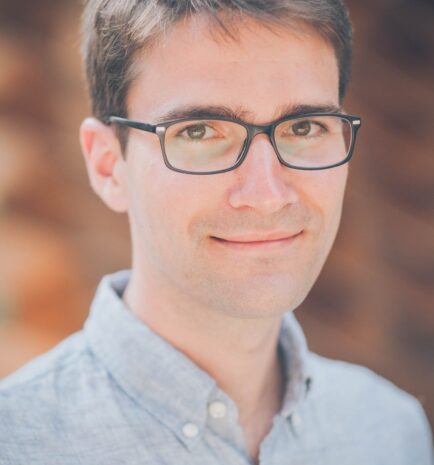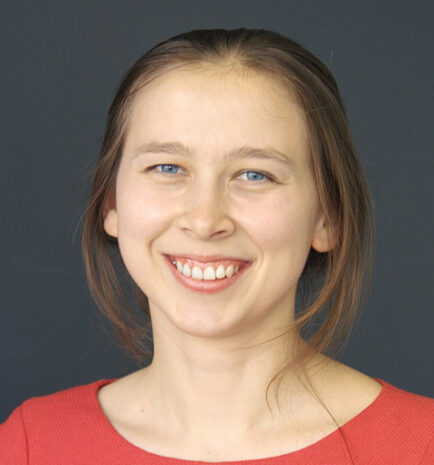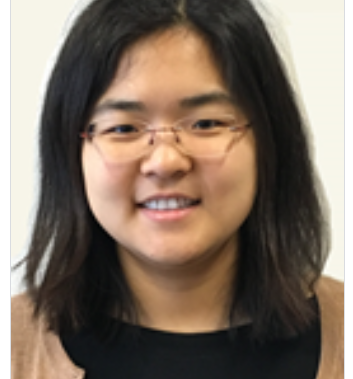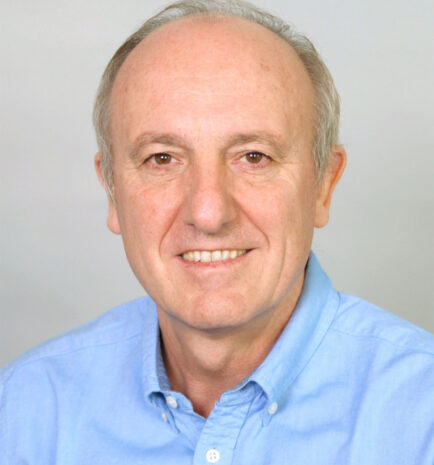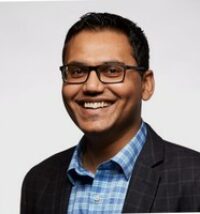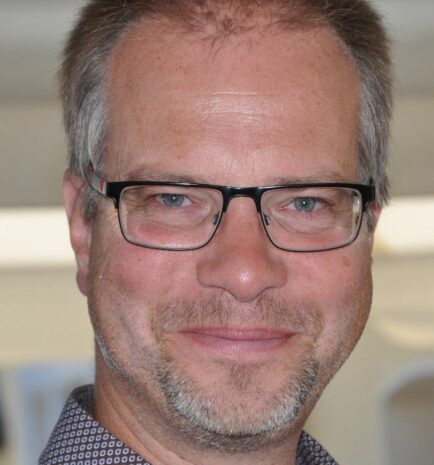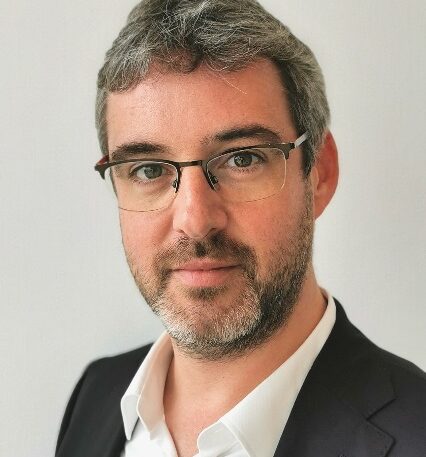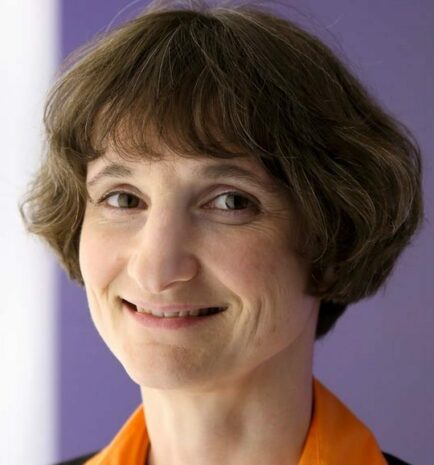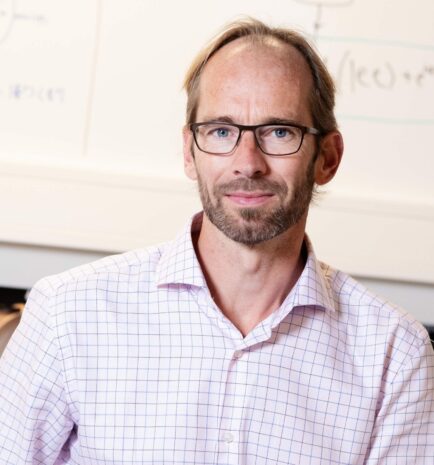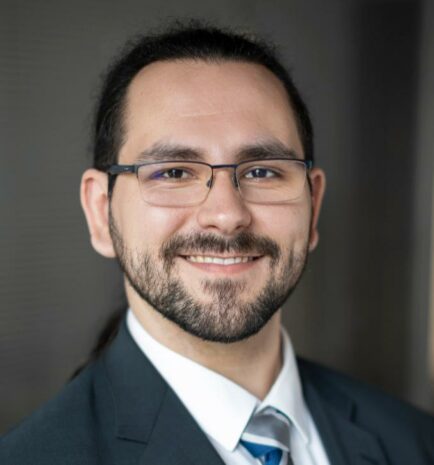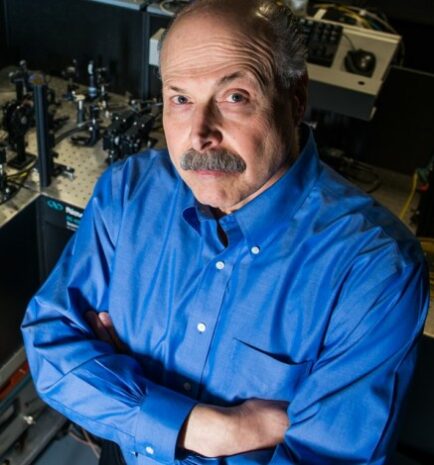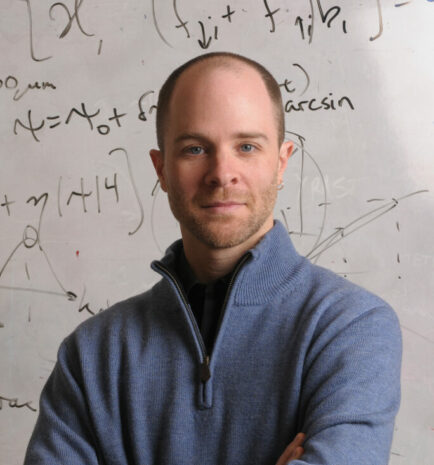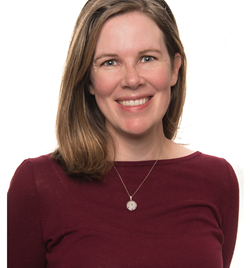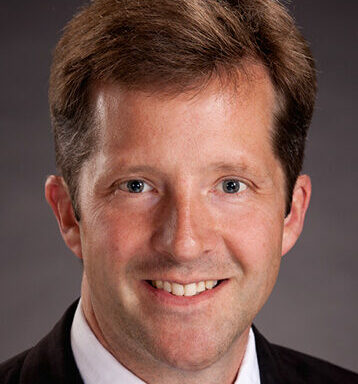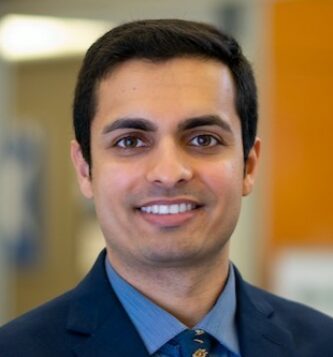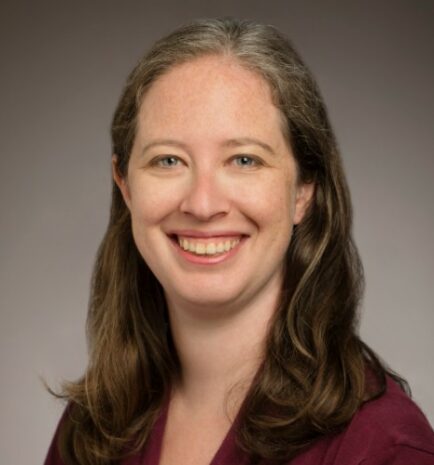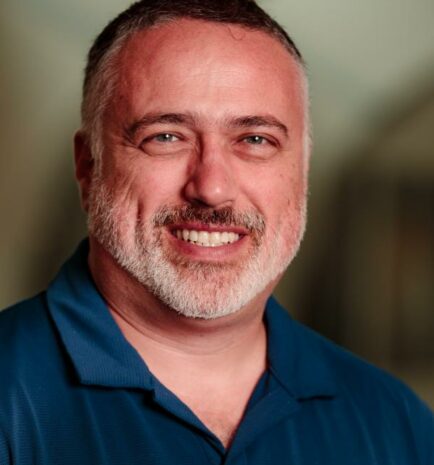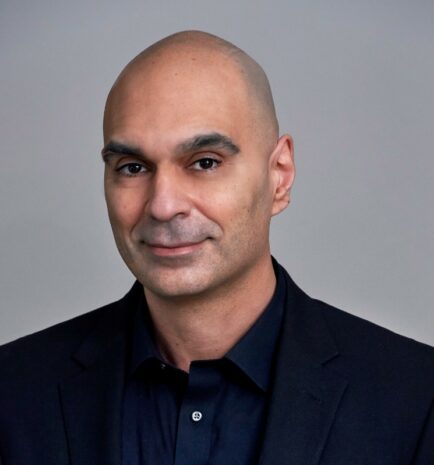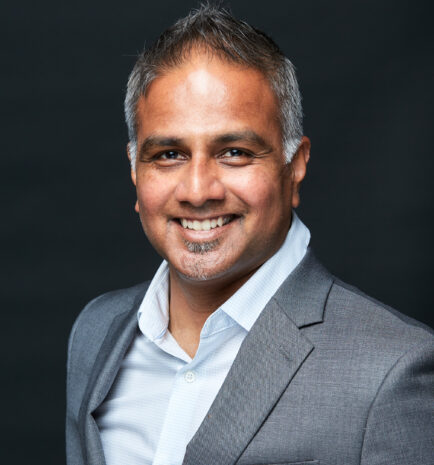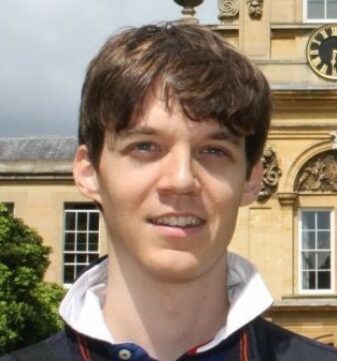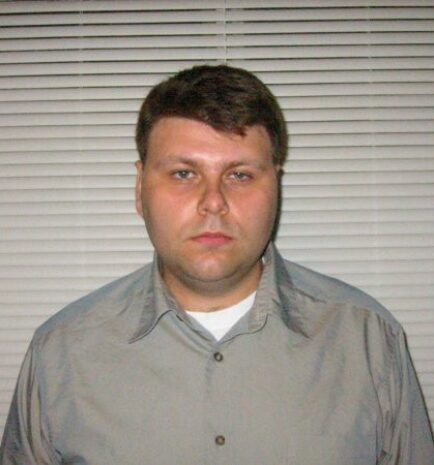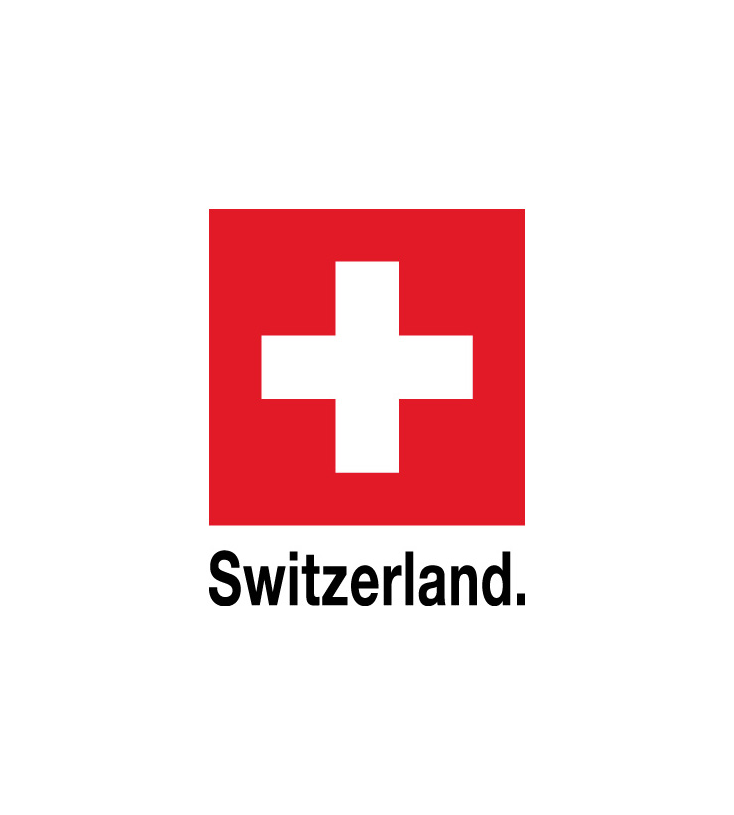
The second quantum revolution is at a crossroads. Switzerland and the United States are investing in quantum information science and technology with shared values for the power of bottom-up research and innovation. The inaugural Swiss-US Quantum Days will bring together key players in the field from both countries on October 19-21, 2022, at the David Rubenstein Forum of the University of Chicago.
The conference aims to deepen the entanglement of the Swiss and US quantum ecosystems in a way that helps to accelerate scientific and commercial breakthroughs, build bridges from lab to market, and create a vibrant ecosystem of knowledge and talent exchange. It will feature science-focused breakouts on major quantum subfields, such as hardware information processing, sensing, and algorithms. Additional sessions will address commercialization and ecosystem-building, industry use cases, and workforce development.
The first edition of the Swiss-US Quantum Days is organized by Swissnex in Boston and the Chicago Quantum Exchange, with the support of our founding partner, the Consulate General of Switzerland in Chicago, ETH Board, and Presence Switzerland. Launched by Swissnex, the initiative is part of a broader bilateral effort to promote the exchange of knowledge, resources, and talent in the field.
Program (Chicago Time)
Wednesday, October 19
19:00-20:30 – Opening reception at Swiss Consular Residence
Thursday, October 20
08:00 – Networking breakfast
09:00 – Welcome addresses
- CQE and Swissnex welcome: David Awschalom, University of Chicago, Argonne National Laboratory,
and Chicago Quantum Exchange and Benjamin Bollman, Swissnex - Charles Tahan, National Quantum Coordination Office
- Martina Hirayama, Swiss State Secretary for Education, Research, and Innovation (SERI)
- Sylvia I. Garcia, Illinois Department of Commerce and Economic
Opportunity - Paul Alivisatos, President, University of Chicago
09:30 – Presenting the Swiss and US quantum ecosystems
- David Awschalom, University of Chicago, Argonne National Laboratory,
and Chicago Quantum Exchange - Anna Fontcuberta i Morral, EPFL
10:15 – Coffee break
10:45 – Breakout session #1: Information processing (hardware)
- Dominik Zumbühl, University of Basel (moderator)
- Mark A. Eriksson, University of Wisconsin-Madison
- Nick Farina, CEO, EeroQ
- Jonathan Home, ETH Zurich
- Vikrant Mahajan, Zurich Instruments
10:45 – Breakout session #2: Photonics, measurement, and sensing
- Chandra Raman, Georgia Institute of Technology (moderator)
- Peter Maurer, University of Chicago
- Marina Marinkovic, ETH Zurich
- Thomas Overstolz, Swiss Center for Electronics and Microtechnology (CSEM)
12:30 – Networking lunch
14:00 – Quantum industry use cases
- Clément Javerzac-Galy, University of Applied Sciences and Arts, Northwestern Switzerland (moderator)
- Shouvanik Chakrabarti, JPMChase & Co.
- Konstantinos Karagiannis, Protiviti
- Yvonna Li, Roche
- Matija Žeško, McKinsey & Company
15:15 – Coffee break
15:45 – Quantum tech commercialization and ecosystem building
- Klaus Ensslin, ETH Zurich (moderator)
- Dick Co, Chain Reaction Innovations
- Brad Henderson, P33
- Dorina Birsanu, uptownBasel
- Alexander Grimm, Paul Scherrer Institute
17:00 – Emerging company pitches
- Andrea Lovera, FemtoPrint
- Kanav Setia, qBraid
18:00 – Conference dinner at Offshore Rooftop, Navy Pier (transportation provided)
Friday, October 21
08:00 – Networking breakfast
09:00 – Day 2 welcome remarks
- David Awschalom, University of Chicago, Argonne National Laboratory,
and Chicago Quantum Exchange
09:10 – Emerging company pitches
- Keith Evans, Great Lakes Crystal Technologies
- Parisa Fallahi, Basel Precision Instruments
- Jennifer Flatté, QuantCAD
09:30 – Funding collaborations across countries
- Brendan Karch, Swissnex in Boston and New York
- Lincoln Carr, Colorado School of Mines
10:15 – Coffee break
10:45 – Breakout session #1: Software, algorithms, and theory
- Daniel Loss, University of Basel (moderator)
- Yuri Alexeev, Argonne National Laboratory
- Pranav Gokhale, ColdQuanta
- Jelena Klinovaja, University of Basel
- Heike Riel, IBM Zurich
10:45 – Breakout session #2: Networking and communications
- Moderator: Supratik Guha, University of Chicago, Argonne National Laboratory
- Elizabeth Goldschmidt, UIUC
- Matt Skrzypczyk, Aliro Quantum
- Wolfgang Tittel, University of Geneva/TU Delft
- Christopher Janes, IDQuantique
12:30 – Networking lunch
14:00 – Workforce and education
- Russell Ceballos, Chicago Quantum Exchange (moderator)
- Emily Edwards, Unviersity of Illinois Urbana-Champaign
- Zeke Johnston-Halperin, The Ohio State University
- Maria Longobardi, University of Basel
- Philippe Caroff, EPFL
15:15 – Coffee break
15:45 – Concluding Session: Roadmapping an action plan
- David Awschalom, University of Chicago, Argonne National Laboratory, and Chicago Quantum Exchange
- Daniel Loss, University of Basel
16:30 – Conference ends
Special Guests
-
![]()
Bio
Charles Tahan
National Quantum Coordination OfficeDr. Charles Tahan is the Assistant Director for Quantum Information Science (QIS) and the Director of the National Quantum Coordination Office (NQCO) within the White House Office of Science and Technology Policy. The NQCO ensures coordination of the National Quantum Initiative (NQI) and QIS activities across the federal government, industry, and academia.
Dr. Tahan is on detail from the Laboratory for Physical Sciences where he drove technical progress in the future of information technology as Technical Director. Research at LPS spans computing, communications, and sensing, from novel device physics to high-performance computer architectures. As a technical lead, Dr. Tahan stood up new research initiatives in silicon and superconducting quantum computing; quantum characterization, verification, and validation; and new and emerging qubit science and technology. As a practicing physicist, he is Chief of the intramural QIS research programs at LPS and works with students and postdocs from the University of Maryland-College Park to conduct original research in quantum information and device theory. His contributions have been recognized by the Researcher of the Year Award, the Presidential Early Career Award for Scientists and Engineers, election as a Fellow of the American Physical Society, and as an ODNI Science and Technology Fellow. He continues to serve as Chief Scientist of LPS and Chief, Quantum Information Science.
Dr. Tahan earned a PhD in Physics at the University of Wisconsin-Madison in 2005 and a B.Sc. in Physics and Computer Science with Highest Honors from the College of William & Mary in 2000. From 2005-2007 he was a National Science Foundation Distinguished International Postdoctoral Research Fellow at the University of Cambridge, UK; the Center for Quantum Computing Technology, Australia; and the University of Tokyo, Japan. He served as chief technical consultant for quantum information science and technology programs in DARPA’s Microsystems Technology Office (MTO) while at Booz Allen Hamilton from 2007-2009. He has a long-term commitment to science and society including creating one of the first games meant to build intuition about quantum computing.
-
![]()
Bio
Martina Hirayama
Switzerland's State Secretary for Education, Research, and InnovationMartina Hirayama is Head of Switzerland’s State Secretariat for Education, Research, and Innovation (SERI) at the Federal Department of Economic Affairs, Education and Research.
Martina Hirayama studied Chemistry at the ETH Zurich, the University of Fribourg, and Imperial College London, graduating from ETH Zurich with a doctorate in technical sciences (Dr. sc. Techn). She went on to do postgraduate studies in Business Economics at the ETH Zurich, and completed her thesis in 1997. She then worked in the ETH Zurich’s Department of Materials, becoming head of the Polymer Chemistry Group in 2001. During this time, Ms Hirayama co-founded a start-up in new coating technologies, and was CEO of the company until 2008.
In 2003 she began lecturing in Industrial Chemistry at the Zurich University of Applied Sciences Winterthur ZHW (now ZHAW), where she developed and headed the field of polymer materials and obtained her professorship. From 2007 to 2010 she developed the ZHAW’s Institute of Materials and Process Engineering. From 2011 to 2018 she was Director of the ZHAW School of Engineering, a member of the university’s executive board and from 2014 head of International Affairs.From 2012 to 2018 Martina Hirayama was president of the board of the Federal Institute of Metrology METAS, from 2011 to 2018 vice president of the Innovation Promotion Agency Innosuisse board (until 2017 the Commission for Technology and Innovation) and from 2016 to 2018 a member of the Swiss National Science Foundation board. She was also on the boards and executive committees of several other organizations, namely the Swiss Study Foundation, the Swiss Academy of Engineering Sciences SATW, the Zurich Chamber of Commerce, and the Kuratorium of the Freiburger Materialforschungszentrum at the Albert-Ludwigs University in Freiburg (Germany). Moreover, she acted as an expert for the National Research Fund Luxembourg (FNR) and the European Commission.
-
![]()
Bio
Paul Alivisatos
President, University of ChicagoA celebrated chemist and accomplished administrator, Paul Alivisatos became the 14th president of the University of Chicago on September 1, 2021.
As President of the University, Alivisatos serves as Chair of the Board of Governors of Argonne National Laboratory and Chair of the Board of Directors of Fermi Research Alliance LLC, the operator of Fermi National Accelerator Laboratory. He is also the John D. MacArthur Distinguished Service Professor in the Department of Chemistry, the Pritzker School of Molecular Engineering, and the College.
Alivisatos previously served as the Executive Vice Chancellor and Provost (EVCP) of the University of California, Berkeley. In addition to his role as EVCP, Alivisatos was the Samsung Distinguished Professor of Nanoscience and Nanotechnology, founding Director of the Kavli Energy Nanoscience Institute, and from 2009-2016 served as Director of the Lawrence Berkeley National Laboratory (Berkeley Lab). A member of Berkeley’s faculty from 1988-2021, he held professorships in the departments of chemistry and materials science, and served in several administrative roles, including Vice Chancellor for Research.
A preeminent scientist and entrepreneur, Alivisatos has made pioneering research breakthroughs in nanomaterials. Contributions to the fundamental physical chemistry of nanocrystals are the hallmarks of his scientific career. His research accomplishments include studies of the scaling laws governing the optical, electrical, structural, and thermodynamic properties of nanocrystals. He developed methods to synthesize size and shape-controlled nanocrystals, and developed methods for preparing branched, hollow, nested, and segmented nanocrystals. In his research, he has demonstrated key applications of nanocrystals in biological imaging and renewable energy. His inventions are widely used in biomedicine and QLED TV displays, and his scientific advances have yielded more than 50 patents.
Alivisatos received his Bachelor’s degree in chemistry in 1981 from the University of Chicago and his Ph.D. in chemistry from Berkeley in 1986. He is a founder of two prominent nanotechnology companies, Nanosys and Quantum Dot Corp, now a part of Thermo Fisher. He is also the founding editor of Nano Letters, a publication of the American Chemical Society, and formerly served on the senior editorial board of Science magazine, a publication of the American Association for the Advancement of Science.
Alivisatos has been recognized for his accomplishments with more than 25 awards including the National Medal of Science, the E.O. Lawrence Award, the Wolf Prize in Chemistry, the Dan David Prize, the Von Hippel Award, the Linus Pauling Medal, the Eni Award for Energy and Environment, the Wilhelm Exner Medal, the 2021 Priestley Medal, the BBVA Foundation Frontiers of Knowledge Award in the Basic Sciences, and the National Academy of Science Award in Chemical Sciences. He is a member of the National Academy of Sciences, the American Academy of Arts and Sciences, and the American Philosophical Society.
-
![]()
Bio
Sylvia I. Garcia
Illinois Department of Commerce and Economic OpportunitySylvia I. Garcia is the Director of the Illinois Department of Commerce and Economic Opportunity (DCEO), where she leads a team comprised of twelve core bureaus and several administrative offices that are focused on deploying capital investments, modernizing workforce development, supporting the growth of small and large businesses, assisting communities with development and infrastructure, and attracting equitable investment throughout Illinois. Director Garcia brings 17 years of experience from the public and private sectors to her role as leader of the state’s economic development arm. Originally from the Detroit metro area, Garcia was inspired at a young age to join the work of helping cities and communities prosper. Garcia previously served as a Principal Consultant at WSP USA, and prior to that, she served as Chief Operating Officer and Chief of Staff at the Chicago Transit Authority (CTA), managing the day-to-day operations of the nation’s second largest transit agency. With extensive service in government – including roles at the U.S. Department of Housing and Urban Development (HUD), the U.S. House of Representatives Committee on Appropriations, and as an Obama appointee at the U.S. Department of Transportation – Garcia has committed her career to developing public policy and capital programs that expand inclusive economic growth.
Featured Swiss Speakers
-
![]()
Bio
Klaus Ensslin
ETH ZurichProfessor Klaus Ensslin is Professor of Solid-State Physics at ETH Zurich. His primary research interest lies in the physics of mesoscopic systems, investigating electronic properties of novel semiconductor nanostructures using material control down to the atomic scale. One important goal is the ever increasing control and improved understanding of the quantum properties of electrons in nanostructures. Ensslin serves as a Director of the Swiss National Centre of Competence in Research: Quantum Science and Technology.
-
![]()
Bio
Dorina Birsanu
uptownBaselDorina Birsanu is Chief Academic Engagement and Partnerships Officer at uptownBasel. With a background in Neural Engineering and a PhD in Innovation and Entrepreneurship, Dorina has always had a passion for translating research into real-world technological innovations. She has led the implementation and commercialization of technological and scientific projects for the biotech and pharma industries. After supporting the launch of the Plug and Play office in Basel, a startup accelerator, Birsanu now leads the academic ecosystem of uptownBasel and builds international and European collaborations. Her goal is to build a strong bridge between the Swiss and US quantum ecosystems and to foster the growth and success of quant talent. uptownBasel is a privately invested innovation campus being founded in Switzerland with a Quantum & AI Hub in order to solve tomorrow’s problems with quantum technology.
-
![]()
Bio
Anna Fonctcuberta i Morral
EPFLProfessor Anna Fontcuberta i Morral is a physicist and materials scientist and head of the Laboratory of Semiconductor Materials at EPFL. Her research focuses on semiconductor nanowires, which constitute attractive building blocks for the assembly of novel nano-electronic and nano-photonic systems for use in quantum systems. Professor Fontcuberta i Morral also serves on the Presiding Board of the Swiss National Science Foundation’s National Research Council.
-
![]()
Bio
Alexander Grimm
Paul Scherrer InstituteDr. Alexander Grimm is the group leader of the bosonic quantum information group after joining the Paul Scherrer Institut as a tenure-track scientist in November 2019. He obtained his PhD for research done between 2011 and 2015 in the group of Max Hofheinz at CEA Grenoble. From 2016 to 2019 he was part of the group of Michel Devoret at Yale University as a postdoctoral associate, working on autonomous quantum error correction (QEC) in bosonic codes. For his contributions to the field of quantum information processing with non-linear effects in Josephson junctions he received the 2022 Nicholas Kurti prize.
-
![]()
Bio
Jonathan Home
ETH ZurichProfessor Jonathan Home is a physicist at ETH, where he leads the Trapped Ion Quantum Information Group. His research investigates quantum state engineering, simulation, and information processing with trapped atomic ions. Professor Home is one of the lead researchers in the new Quantum Computing Hub established by ETH and the Paul Scherrer Institute.
-
![]()
Bio
Christopher Janes
ID QuantiqueChristopher Janes is the Director of Technical Solutions and Support at ID Quantique and is located in Boston, Massachusetts. He has more than 27 years of combined experience in the fields of classical networking, optical networking, cybersecurity, and quantum cryptography using QKD. His experience includes securing technologies ranging from mobile handsets to the cloud, and almost everything in between. Janes has personally installed dozens of QKD systems around the globe, representative of multiple industry verticals.
-
![]()
Bio
Clément Javerzac-Galy
University of Applied Science and Arts, Northwestern SwitzerlandProfessor Clément Javerzac-Galy is a professor of applied quantum computing at the University of Applied Sciences Northwestern Switzerland (FHNW) and a co-founder of Miraex, developing photonic and quantum technologies for next-gen sensing, networking, and computing. He obtained his PhD at EPFL in the group of Tobias Kippenberg. Prior to joining EPFL, he was a guest researcher at NIST (USA) working with William D. Phillips and held a position at Thales Group. He is an engineer from Institut d’Optique (Paris) and studied physics at Université Paris Saclay and EPFL.
-
![]()
Bio
Jelena Klinovaja
University of BaselProfessor Jelena Klinovaja is a physicist at the University of Basel working on condensed matter theory and quantum computing. Her research focuses on topological effects and spin phenomena, especially in topological insulators, carbon-based systems, atomic chains, semiconducting 2DEGs, and nanowires. She studies the properties of existing structures and also works to ‘engineer’ new systems with exotic quantum properties, such as strong electron-electron interactions. Klinovaja is Deputy Co-Director of the Swiss National Centre of Competence in Research: Spin Qubits in Silicon.
-
![]()
Bio
Yvonna Li
RocheYvonna Li is a senior scientist in Roche Pharma Research & Early Development, based in Basel. Her focus is on machine learning and its application to image analysis in the context of early clinical development. She has a special interest in quantum computing and its application to the pharma industry and machine learning.
-
![]()
Bio
Daniel Loss
University of BaselProfessor Daniel Loss is a Professor of Theoretical Physics at the University of Basel. He is director of the Basel Center for Quantum Computing and Quantum Coherence (QC2), co-director of the Swiss Nanoscience Institute (SNI) at the University of Basel, and the co-director of the Swiss National Centre of Competence in Research: Spin Qubits in Silicon. His research interests include many aspects of the theory of condensed matter systems with a particular focus on spin-dependent and phase-coherent phenomena (“mesoscopics”) in semiconducting nanostructures and molecular magnets.
-
![]()
Bio
Vikrant Mahajan
Zurich InstrumentsAn engineer by training, Vikrant Mahajan joined Zurich Instruments in 2020 as VP of Sales and Operations, Americas, and leads the Boston-based US subsidiary. Vikrant has extensive experience with building and leading high performance technical and business teams. Prior to joining Zurich Instruments, Vikrant managed LED retrofit and smart home lighting business segments at Osram Sylvania and Ledvance. Vikrant began his professional journey at Labsphere Inc as an Applications Engineering Manager after graduating in 2005 with a Master of Science in Electrical Engineering.
-
![]()
Bio
Thomas Overstolz
CSEMDr. Thomas Overstolz received his PhD in science from the University of Neuchâtel (Switzerland) in 2007, based on his work on MEMS hybrid platforms for tuning optical components. In 2005 he joined Centre Suisse d’Electronique et de Microtechnique (CSEM), where he works as a senior R&D engineer and as a project manager, responsible for MEMS technology integration in various projects. In 2022 he was appointed Focus Area Manager of the MEMS & Packaging activity. He is the author and co-author of more than 50 scientific publications and 8 patents.
-
![]()
Bio
Philippe Caroff-Gaonac'h
EPFLPhilippe Caroff currently serves the EPFL community on Education, Research, and Innovation in Quantum, as executive director of the Quantum Science and Engineering Center. In his previous role (2017-2022) he served as a principal research manager at Microsoft Quantum working on growing quantum material crystals. Philippe’s technical background lies in compound semiconductor nanotechnology and quantum materials, with academic research roles at Lund University, CNRS in France, and the Australian National University.
-
![]()
Bio
Heike Riel
IBM ResearchDr. Heike Riel is an IBM Fellow, Head of Science & Technology and Lead of IBM Research Quantum Europe at IBM Research. She leads the research agenda of the Science & Technology department aiming to create breakthroughs in Quantum Computing, Physics of Artificial Intelligence, Nanoscience and Nanotechnology, Precision Diagnostics and Smart System Integration.
-
![]()
Bio
Wolfgang Tittel
University of GenevaProfessor Wolfgang Tittel is an experimental physicist specializing in quantum optics and
quantum communications. He is a full professor at the Delft University of Technology and a visiting professor at the University of Geneva. Some of his notable research results include the first demonstration of measurement-device independent quantum key distribution, which is of particular interest due to its resilience to quantum hacking, its suitability for building networks, and its upgradability to quantum repeater-based communication links; city-wide quantum teleportation; and the storage and recall of members of entangled photon pairs using rare-earth-based quantum memory. -
![]()
Bio
Matija Zesko
McKinsey & CompanyMatija Zesko is a Specialist in Quantum Technologies (QT) at the management consultancy McKinsey & Company. He serves his clients by: (i) helping them understand the QT ecosystem and the players in it, (ii) explaining the business impact of QT on their industry, and (iii) advising them on where and how they could apply it in their operations. Before McKinsey, Matija completed his PhD at ETH Zurich in the field of experimental atomic physics working on Rydberg atoms under the guidance of Prof. Dr. Frédéric Merkt. In his free time, Matija enjoys building LEGO models and learning about history.
-
![]()
Bio
Dominik Zumbühl
University of BaselProfessor Dominik Zumbühl is a physicist at the University of Basel. His lab conducts quantum transport experiments in semiconductor nanostructures, in order to investigate quantum coherence, electron and holes spins as well as nuclear spins and interactions. In addition to examining spin quits for quantum computing, he also researches nanowire and 1D systems for novel quantum matter, and spin-orbit coupling in quantum dots, wires, and wells, among other projects. Zumbühl serves as Director of the Swiss National Centre of Competence in Research: Spin Qubits in Silicon.
Featured US Speakers
-
![]()
Bio
David Awschalom
University of ChicagoDavid Awschalom is the Liew Family Professor and Vice Dean in the Pritzker School for Molecular Engineering at the University of Chicago, a Senior Scientist at Argonne National Laboratory, and Director of the Chicago Quantum Exchange. He is also the inaugural director of Q-NEXT, one of the US DOE Quantum Information Science Research Centers. He explores the quantum nature of electrons, nuclei, and photons in semiconductors and molecules for quantum information processing. Awschalom is a member of the American Academy of Arts & Sciences, the National Academy of Science, the National Academy of Engineering, and the European Academy of Sciences.
-
![]()
Bio
Lincoln Carr
Colorado School of MinesLincoln Carr is a Professor of Physics at the Colorado School of Mines and serves as a Senior Advisor for the Office of Science and Technology Cooperation at the US Department of State. Carr’s research focuses on quantum complexity, open quantum systems, and quantum transport. While working as a Fellow for the US Department of State, he has focused on deepening connections between US quantum ecosystems in those in Switzerland and Germany.
-
![]()
Bio
Emily Edwards
University of Illinois Urbana-ChampaignDr. Emily Edwards is the Executive Director of the Illinois Quantum Information Science and Technology Center at the University of Illinois Urbana-Champaign. She is co-leading the Q2Work project with U. Chicago and U. Pittsburgh. Q2work helps lead the National Q-12 Education Partnership, a workforce initiative spearheaded by NSF and WHOSTP. Edwards also has multiple projects in informal STEM education and science communication, including “The Quantum Atlas” with the University of Maryland and “Quander” with the University of Chicago and University of California Santa Barbara.
-
![]()
Bio
Mark A. Eriksson
University of Wisconsin-MadisonComing soon
-
![]()
Bio
Pranav Gokhale
ColdQuantaComing soon
-
![]()
Bio
Elizabeth Goldschmidt
University of Illinois at Urbana-ChampaignProfessor Elizabeth Goldschmidt is an assistant professor in the Department of Physics at the University of Illinois Urbana-Champaign where she leads an experimental research program in quantum optics and quantum information. She received her bachelor’s in physics from Harvard University and her doctorate in physics from the University of Maryland. Her graduate research as a Joint Quantum Institute graduate fellow was on single photon technologies and optical quantum memory. She was a National Research Council postdoctoral fellow at the National Institute of Standards and Technology where she studied ultracold and Rydberg excited atoms in optical lattices for quantum simulation, and then a staff scientist at the US Army Research Laboratory studying quantum optics in solid-state systems.
-
![]()
Bio
Ezekiel Johnston-Halperin
The Ohio State UniversityProfessor Ezekiel Johnston-Halperin received his PhD in Physics from the University of California at Santa Barbara in 2003. He is currently a Professor in the Department of Physics at The Ohio State University, Columbus. Prof. Johnston-Halperin’s research focuses on studies of coherent spin and magnetization dynamics, synthesis of magnetic materials, and prototype device development for spintronics and quantum information applications. Prof. Johnston-Halperin is a Fellow of the American Physical Society and served on the Executive Committee of the Division of Materials Physics (DMP), and is leading the NSF-funded education initiative QuSTEAM: Convergent Undergraduate Education in Quantum Science Technology, Engineering, Arts, and Mathematics.
-
![]()
Bio
Konstantinos Karagiannis
ProtivitiKonstantinos Karagiannis is the Director of Quantum Computing Services at Protiviti. His team helps deliver real use cases for emerging NISQ machines to customers and also prepares companies for post-quantum cryptography challenges. Karagiannis has been involved in the quantum computing industry since 2012 and in InfoSec since the 1990s. He has spoken at RSA, Black Hat, Defcon, and dozens of conferences worldwide. He is the host of The Post-Quantum World podcast.
-
![]()
Bio
Chandra Raman
Georgia Institute of TechnologyDr. Chandra Raman, Professor of Physics at Georgia Tech, performs groundbreaking research in diverse areas of atomic physics including laser cooled atoms and atomic vapors for sensing and metrology. As the leader of the Raman Lab at Georgia Tech, he has uncovered new properties of quantized vortices, spin textures and quantum phase transitions in ultracold Bose-Einstein condensates, work for which he was awarded Fellowship in the American Physical Society. He is a recognized thought leader in quantum sciences, and his work over the past 10 years has continuously received on average 300 citations/year according to Google Scholar. From 2013-15 he took leave to work in industry, and today the Raman Lab brings a focus on chip-scale, portable atomic sensors and technology. He has 4 patents issued/applied for in atomic devices and instrumentation.
-
![]()
Bio
Peter Maurer
University of ChicagoComing soon
-
![]()
Bio
Yuri Alexeev
Argonne National LaboratoryComing soon
Partners
The Swiss-US Quantum Days are co-organized by Swissnex in Boston and the Chicago Quantum Exchange, with the support of our founding partner the Consulate General of Switzerland in Chicago, the ETH Board, and Presence Switzerland.
